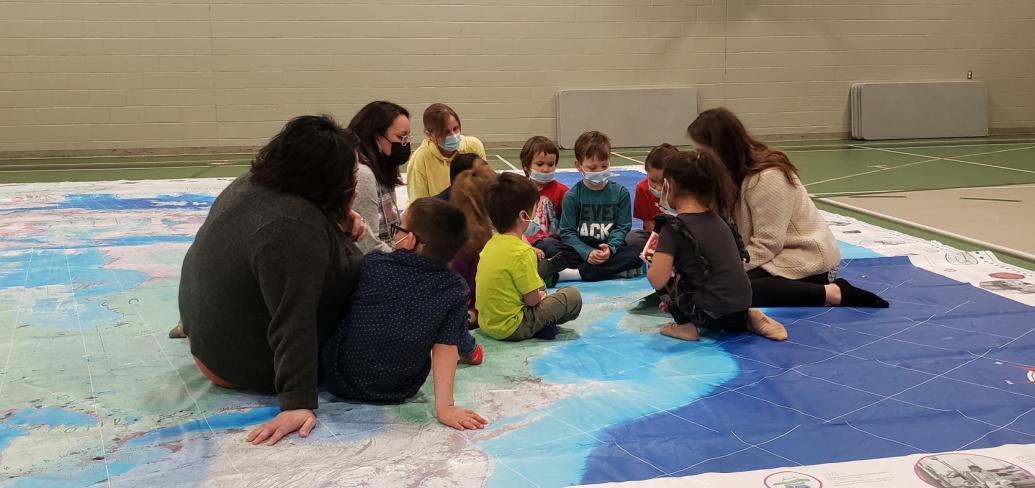Education and empathy: Teaching the truth of Canada’s Indigenous peoples

For many, learning is a lifelong process – even for educators.
That’s just one reason government established the Indigenous Education Advisory Committee – or IEAC – last year.
“Teachers have to learn how to teach students about Indigenous issues,” says Jack Headley, a Social Studies and Innovation Leader with the Department of Education and Early Learning.
“And we have to provide them with opportunities to help them do that.”
To better prepare educators to teach Indigenous content, knowledge and culture, the department has begun work on several initiatives, including a professional development course that helps raise awareness on the history of residential schools in Canada.
“It’s part of the department’s commitment to meeting the Calls to Action in the Truth and Reconciliation report,” says Headley.
Establishing the IEAC was another piece of that commitment.
The committee is comprised of members representing a variety of groups, including the Mi’kmaq Confederacy of PEI, Abegweit First Nation, Lennox Island First Nation, L’Nuey, the Department of Education and Early Learning, the Public Schools Branch, and UPEI’s Faculty of Education.
The group meets to discuss issues such as learning opportunities for teachers and the resources needed to enhance Indigenous education and curriculum for Island students – both Indigenous and non-Indigenous.
“The goal of the curriculum is to help foster informed and respectful discussion about Indigenous issues – both in the past and today,” says Headley.
“We want to give Indigenous students a sense of belonging, a sense of identity. And we want to heighten all students’ awareness and understanding of Indigenous values, perspectives, and culture.”
Integrating culture into school curriculum is something Nancy Peters-Doyle already does with her students.
“I try to interject a bit of language and a bit of cultural teaching, usually through a hands-on activity.”
Peters-Doyle is the K4 to Grade 6 Mi’kmaw teacher at John J. Sark Memorial School on Lennox Island. She also teaches a Mi’kmaq language class at Hernewood Intermediate School in O’Leary to students in Grades 7, 8 and 9 who identify as Mi’kmaq.
“It’s a safe space when they come into the Mi’kmaq class,” she says. “A space where they can be their authentic selves.”
Peters-Doyle, who learned some of the language from her Mi’kmaw father, is a member of the Indigenous Education Advisory Committee.
Committee meetings involve a lot of “troubleshooting” the current curriculum, as well as discussing how to interject Indigenous knowledge and understanding into teaching methods, says Peters-Doyle.
It comes down to teaching empathy, she says.
“Empathy for the Indigenous history and plight in Canada.”
She says the “full story” about Canada’s history must be told – and taught – to both children and adults.
Even if it’s uncomfortable.
“It’s from that discomfort that, hopefully, genuine empathy is built,” she says.
While the curriculum is still in the development stage, Peters-Doyle says things are moving in the right direction – starting with the dialogue between members of the Indigenous Education Advisory Committee.
“Cogs are turning, ears are listening and, I think, in a genuine way – more than they ever have.”